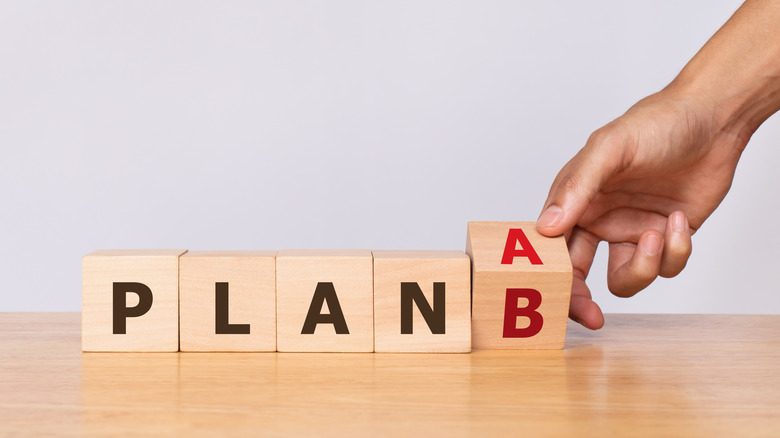What Happens To Your Body When You Take Emergency Contraception
Maybe the condom broke, or maybe a condom wasn't used at all. Either way, now you have taken emergency contraception, or are interested in doing so. There are various forms of contraception to choose from, including Plan B and Levonorgestrel tablets, both of which are available without a prescription. Plan B is available on shelves for people of all ages, whereas Levonorgestrel tablets are available over-the-counter for people 17 years of age or older (via the Office on Women's Health). The most effective emergency contraceptive pill for people who weigh over 155 pounds is ella, which requires a prescription that may be obtained online and delivered within 24 hours if necessary (via Planned Parenthood).
According to the World Health Organization, another effective form of emergency contraception is the copper-bearing IUD. If you are overwhelmed by all the options and need help choosing which kind of emergency contraception would be the most suitable for you, Planned Parenthood offers a quiz here.
All forms of emergency contraception can be used up to five days after unprotected sex, but should ideally be used within three days. The sooner you use it after unprotected sex, the more likely it is to be effective; when taken within three days, most Plan B pills reduce your risk of pregnancy by 75-89% (per Planned Parenthood). According to the World Health Organization, the copper-bearing IUD is over 99% effective.
So we know that emergency contraception is very effective, but have you ever wondered why?
Emergency contraception prevents pregnancy by interfering with the ovulation or fertilization process
Many people believe that emergency contraception works by terminating pregnancies, but that is not the case. Instead, emergency contraception prevents pregnancy before it begins. If you take an emergency contraceptive pill, it will delay or prevent ovulation, which means that there will be no egg available for the sperm to fertilize. Meanwhile, if you use a copper-bearing IUD, it will induce a chemical change in the egg and sperm to prevent them from meeting (per the World Health Organization).
Emergency contraception does not affect future fertility, but there are still some potential side effects such as fatigue, slight vaginal bleeding, or nausea and vomiting. The World Health Organization advises taking another emergency contraceptive pill if you vomit within two hours of taking one. Fortunately, side effects are not very common, and they tend to resolve on their own. And hey, feeling nauseous for a few hours is preferable to feeling nauseous for weeks due to an unwanted pregnancy.


